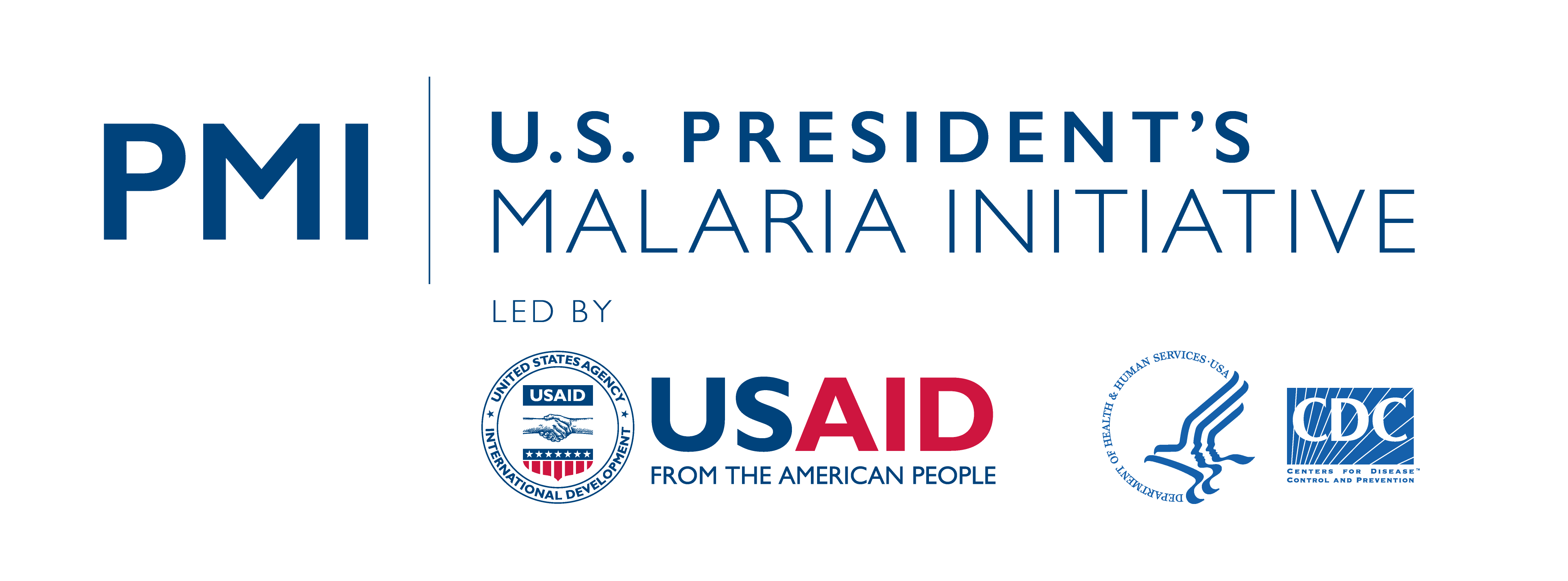FAQs
This section is designed to help community and faith leaders use this toolkit and also to help answer questions that may arise about malaria.
How to use the toolkit
This toolkit is a user-friendly, phone-based platform to assist community and faith leaders in planning and implementing malaria activities alongside their ongoing efforts.
The links across the top of the page orient users on how to use the different features of the toolkit. Users should first consult the About the Toolkit section to learn what the toolkit includes. Users should then go through the content of the toolkit, using the tools, templates, and resources provided. Consulting the Acronyms and Glossary for unfamiliar terms. There is a list of Frequently Asked Questions to help users use the toolkit and common malaria questions they might come across.
Users know if a link is to an outside website if they see an icon like this: and materials are available for immediate download when they see an icon like this:
Users of this toolkit can find each other to compare experiences and get ideas by joining the Springboard for Social and Behavior Change special online Group for Community and Faith Leaders .
For areas where English and French is not spoken, it is recommended that national-level organizations partners share costs of translation and dissemination into the local language.
If there are any comments or questions on how to use this toolkit best, please contact us.
Malaria Frequently Asked Questions
Please note that this list of Malaria FAQs is by no means exhaustive. If a community member has a question that is not on this list, please refer people to a community health worker or nearby health facility.
Does eating specific foods cause malaria?
Malaria is carried by mosquitoes. The only way you can get malaria is through the bite of a mosquito infected with malaria. Malaria is not caused by eating any specific food.
Does witchcraft cause malaria?
Malaria is carried by mosquitoes. The only way you can get malaria is through the bite of a mosquito infected with malaria. That being said, malaria can cause complications that may be misinterpreted as witchcraft. For example, malaria, if untreated, can become severe and cause convulsions. You might view this as a sign of “being possessed” or witchcraft. However, this is a known symptom of severe malaria.
Why should I use an insecticide-treated net?
Sleeping under an insecticide-treated net each and every night is one of the most important actions you can take to prevent malaria. The type of mosquitoes that carry malaria almost always bite between sunset and sunrise. Insecticide-treated nets provide a physical barrier to ensure mosquitoes cannot bite you when you are sleeping, and bednets treated with insecticides provide even greater protection by killing or repelling mosquitoes.
How do I use a insecticide-treated net?
Whether you sleep inside or outside, you should always use an insecticide-treated bednet. If you are sleeping indoors, hang the net from the walls or roof to ensure that your bed or sleeping mat is covered completely. The net should be hung so that it can be tucked tightly under your bed or sleeping mat. If you are having trouble hanging your bednet, you can seek assistance from a community health worker.
Are insecticide-treated nets uncomfortable to sleep in?
Some find it hot to sleep under an insecticide-treated net. However, sleeping under a net each and every night is one of the most effective actions you can take to protect yourself and your family from malaria. One added benefit of insecticide-treated nets is that they may help you sleep by preventing mosquitoes and other insects from flying around and making noise.
I have heard that insecticide-treated nets cause itching and irritation. Is that true?
Some people find that their insecticide-treated nets cause itching and irritation. This is typically because the net was not aired out when it was first received. To avoid irritation and itching, spread your new net out in the shade for at least 24 hours before using it for the first time.
Does using a insecticide-treated net cause infertility?
The insecticides used to treat nets are not harmful to people and do not cause infertility. The World Health Organization conducts rigorous safety assessments and inspections of products before they are approved for use. Insecticide-treated nets have been proven safe for use by adults, children, and babies.
Can my child get sick from playing or chewing on an insecticide-treated net?
The insecticides used to treat net are not harmful to people and your child cannot get sick from playing, sucking, or chewing on your net. The World Health Organization conducts rigorous safety assessments and inspections of products before they are approved for use, and insecticide-treated nets have been proven safe for use by adults, children, and babies.
How should I care for my insecticide-treated net?
When not in use, it is recommended that you tie up or fold your insecticide-treated net and protect it from sunlight. These actions will help ensure that your bednet protects you for a long time. If you find that you need to wash your bednet, it is recommended that you wash it very gently in a basin with cold water and ordinary soap. Do not wash your insecticide-treated net more than is needed, as the insecticide used to repel mosquitoes becomes less effective with repeated washing. You should also be sure to dry the mosquito net in the shade, never in the sun, as sunlight will harm the insecticide.
After I receive a new insecticide-treated net, what can I use my old net for?
Unless, you have received a new net, maintain and use your net for as long as possible to protect against malaria. Once you receive a new net, you can use your old net as curtains, window or door screens, or stuffing in eaves. You should not burn your old bed net or dispose of it in water.
Can I use my bednet for fishing?
The main purpose of an insecticide-treated net is to prevent mosquito bites. Some insecticide-treated nets are treated with insecticides that are not harmful to people but that can be very harmful to small fish and can hurt the fish population.
Can spraying the walls (indoor residual spraying) of the inside of my home cause infertility?
The insecticides used for indoor residual spraying are not harmful to people and do not cause infertility when used properly. The World Health Organization conducts rigorous safety assessments and inspection of products before they are approved to use, and individuals spraying are trained in proper application of insecticides.
Are larviciding and/or other environmental management techniques recommended for malaria prevention?
Larviciding is an intervention that targets the immature stages of mosquitoes in their habitat. It is difficult to predict when and where mosquito breeding sites will form. This makes it challenging to find and treat breeding sites before adult mosquitoes emerge. Given these challenges, larviciding is not used on a large-scale to prevent malaria in Africa. The best thing you can do to prevent malaria is to ensure everyone in your household sleeps under an insecticide-treated net each and every net. Pregnant women should also seek antenatal care as soon as they discover they are pregnant and take the preventive medicine given by their health care provider.
Is there a vaccine that I can get to prevent malaria?
A vaccine for malaria is currently being tested in three countries: Malawi, Kenya, and Ghana. However, available evidence suggests the vaccine only provides partial protection against malaria. This means that the vaccine does not fully prevent malaria transmission and that some individuals who receive the vaccine may still get sick with malaria. For this reason, it is critical to continue to rely on trusted malaria interventions such as the use of insecticide-treated nets, indoor residual spraying, prompt care-seeking, and preventive treatment during pregnancy.
I am pregnant. Where should I seek care to prevent malaria? Should I take medication to prevent malaria while I am pregnant?
As soon as you realize you are pregnant, you should seek antenatal care at a health facility. If appropriate, your provider will give you medication to prevent malaria. This medication is free and will not harm your baby. Still, it will help prevent malaria, which is important because when you are pregnant, you have less immunity (natural protection) to malaria. During your initial visit to the health facility, you will also likely be provided with an insecticide-treated bednet. You must sleep under the bednet each and every night. This will also help ensure you avoid getting sick. It is also important that you continue to visit the health facility throughout your pregnancy duration regularly. This will ensure that you continue receiving antenatal care and additional doses of the medication to prevent malaria.
When should I seek treatment for a fever?
As soon as you or your child develops a fever, ideally within 24 hours, you should visit the nearest health facility or community health worker to be tested for malaria using a rapid diagnostic test or microscope. It is critical to seek treatment early to prevent the onset of severe illness.
I think I might have malaria. Should I go to my traditional healer for treatment?
Fever can be caused by many illnesses. In order to get the correct treatment, you will want to know for sure that you have malaria. The only way to confirm whether you have malaria is to be tested using a rapid diagnostic test or microscope by a trained health care provider.
How accurate are malaria tests? Can a malaria test be wrong?
Malaria tests are very accurate, and their results are reliable and trustworthy. There is a very small chance that a malaria test might be interpreted incorrectly. However, the key is to follow your health care provider’s instructions. If your test is positive and your provider recommends taking a medication, you should do so. If your test is negative and your provider indicates no need to take medication, you should follow their instructions.
What medications should someone who is sick with malaria take?
Several different medications treat malaria. You should follow a trained health care provider or community health worker’s instructions as to what medication you should take. Once a medication has been prescribed, do not share the medicine with anyone, and be sure to take the full course of treatment, even if you start feeling better.
When should I take medication for malaria?
Only take malaria medication when you test positive for malaria and a trained health care provider gives it to you. The medicine for treating simple malaria is free in health care facilities, and you should take the entire course as directed. You should not save medication for a future illness because your illness might come back if you don’t take the full course. You may also be told to take medication for malaria if you are pregnant.
Are there any foods that cure malaria?
Malaria is treated with medication. There are no specific foods that cure malaria. However, a person with malaria may have anemia, in which case meat, beans, and high-iron foods, like leafy greens, may be encouraged. It’s important to follow the advice of your health care provider.
Additional Questions
If you have additional questions, we encourage you to reach out to a trained community health worker or visit a local health facility. You can also reach out to the National Malaria Control Program in your country. In general, however, if you are unsure of an answer to a question from a member of your community, please don’t hesitate to say that you’re unsure and refer them to a community health worker or nearby health facility.
The RBM Partnership to End Malaria has put together a list of the most commonly asked questions about malaria: World Malaria Day – Frequently Asked Questions .


